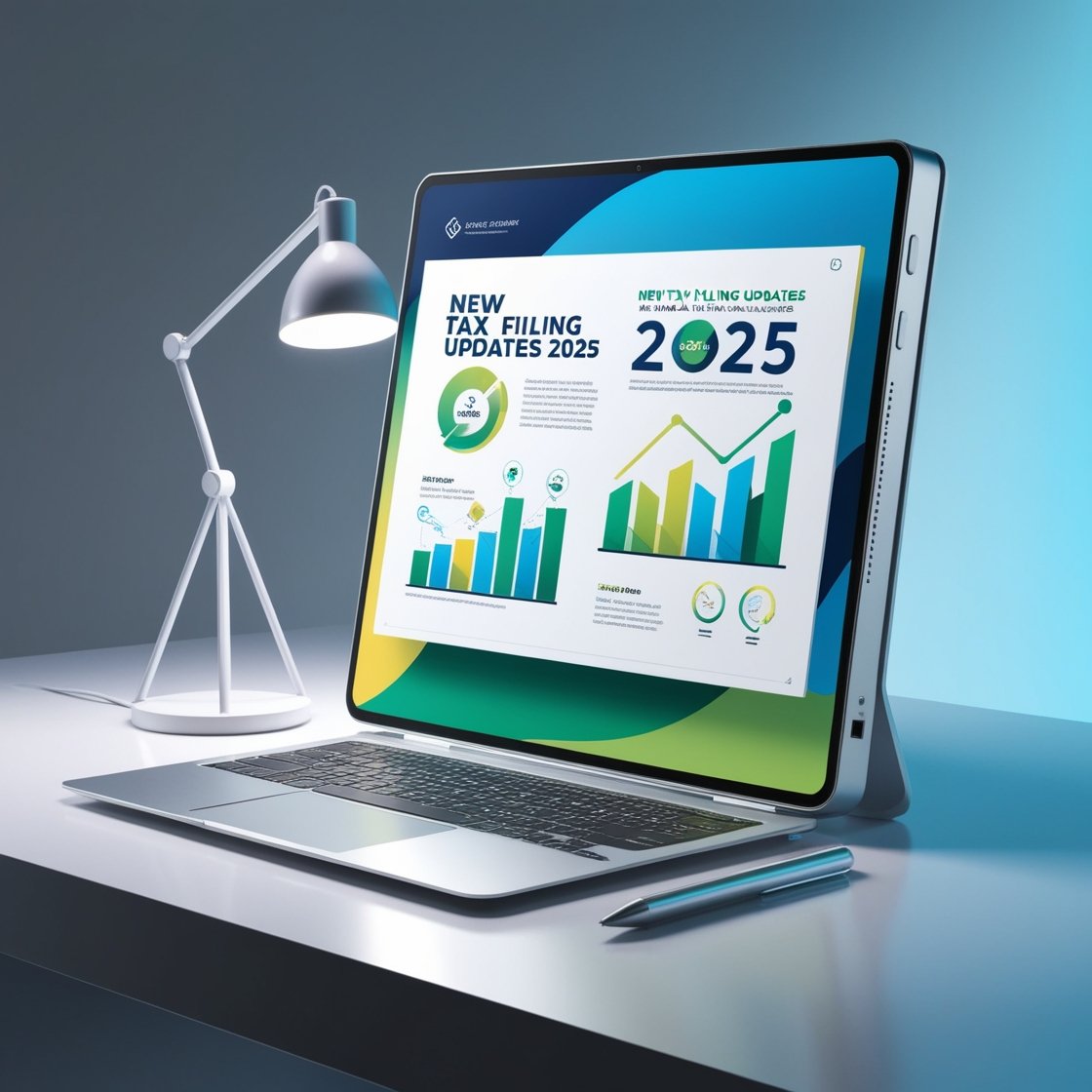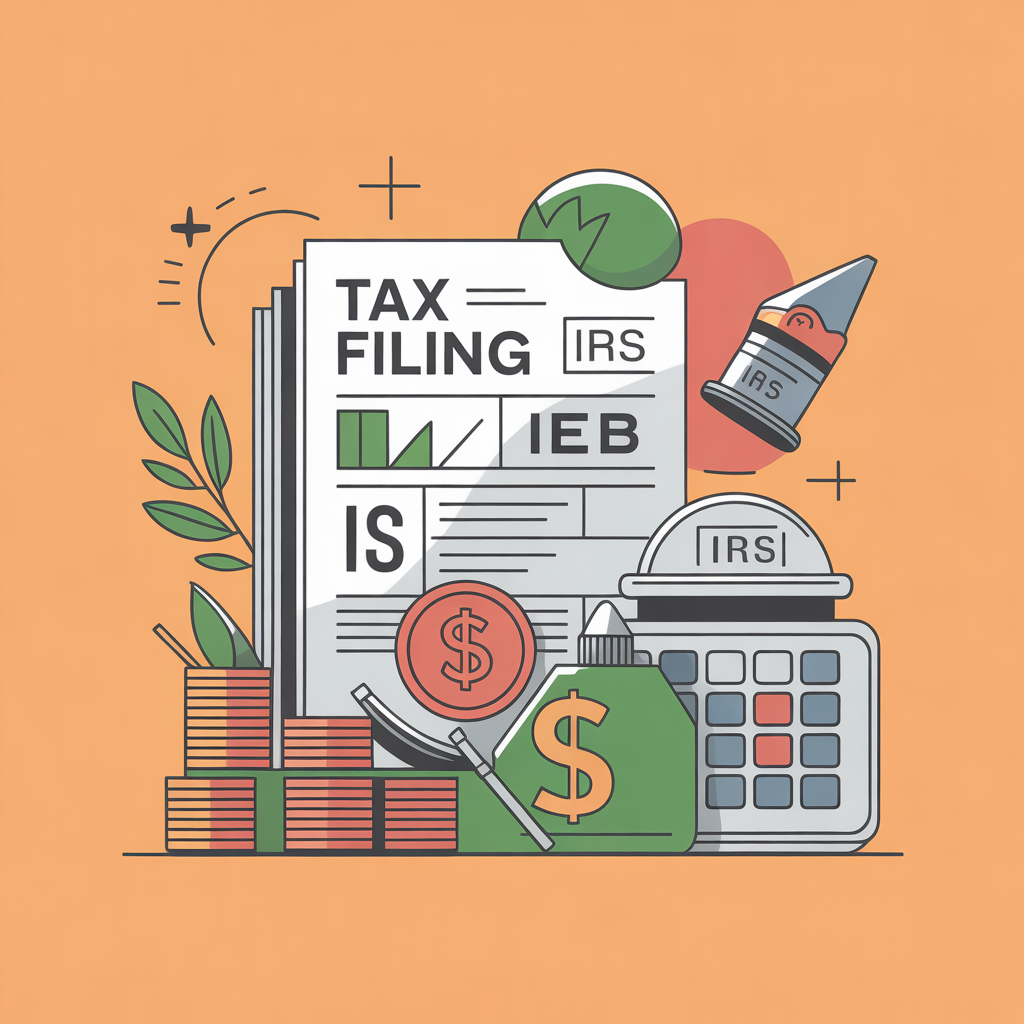The tax landscape in the United States evolves every year, and 2025 is no exception. Staying informed about the latest changes can help you optimize your tax strategy, avoid penalties, and potentially save money. Here’s a detailed look at the key updates in U.S. tax filing for the current tax year.
- Standard Deduction Increases
One of the most significant annual changes involves adjustments to the standard deduction due to inflation. For 2025:
- Single Filers: The standard deduction has increased to $14,600.
- Married Filing Jointly: The deduction rises to $29,200.
- Head of Household: The deduction is now $21,200.
These increases mean more taxpayers may find it beneficial to take the standard deduction instead of itemizing.
- Updated Tax Brackets
Tax brackets have been adjusted for inflation, impacting how much tax you owe based on your income. Here’s a snapshot of the new brackets for 2025:
- 10%: Income up to $11,500 (single) or $23,000 (married filing jointly)
- 12%: Income from $11,501 to $47,300 (single) or $23,001 to $94,600 (married filing jointly)
- 22%: Income from $47,301 to $108,400 (single) or $94,601 to $216,800 (married filing jointly)
For a complete breakdown, consult the IRS’s official tax tables.
- Child Tax Credit Adjustments
The Child Tax Credit has undergone some changes:
- The credit amount per qualifying child remains at $2,000, but the refundable portion has increased to $1,800 per child.
- The income threshold for the phase-out has been raised, allowing more families to qualify.
Additionally, families with dependents over 17 may still claim the $500 non-refundable credit for other dependents.
- Energy Tax Credits Expanded
The federal government continues to incentivize energy-efficient upgrades through tax credits:
- Residential Clean Energy Credit: Taxpayers can claim up to 30% of the cost of qualifying home solar, wind, or geothermal systems.
- Energy-Efficient Home Improvement Credit: Expanded to include energy-efficient doors, windows, and HVAC systems. The maximum annual credit is now $3,200.
- Health Savings Account (HSA) Contribution Limits
If you use an HSA to save for medical expenses, you’ll want to note the updated contribution limits:
- Individuals: The limit has increased to $4,150.
- Families: The limit is now $8,300.
- Catch-Up Contributions: Taxpayers aged 55 and older can contribute an additional $1,000.
- Changes to Retirement Contribution Limits
To encourage retirement savings, the IRS has raised contribution limits for 401(k) plans and IRAs:
- 401(k): The contribution limit is now $23,000, with an additional $7,500 catch-up contribution for those aged 50 and older.
- IRA: The contribution limit has increased to $7,000, with a $1,500 catch-up contribution.
These increases offer more opportunities to reduce your taxable income.
- New Reporting Requirements for Venmo, PayPal, and Other Payment Apps
Taxpayers who receive payments through third-party apps like Venmo, PayPal, or Cash App should be aware of stricter reporting rules. If you receive more than $600 in payments for goods or services, the payment app will issue you a Form 1099-K.
This change aims to improve compliance among gig workers and small businesses, so ensure you track all income accurately.
- Estate and Gift Tax Exemption
The estate and gift tax exemption has increased for 2025:
- Estate Tax Exemption: Raised to $13.6 million per individual.
- Gift Tax Exclusion: Increased to $18,000 per recipient per year.
These adjustments allow for more tax-free transfers of wealth.
- New Penalty Thresholds for Late Filing and Payments
The IRS has updated penalties for late filing and late payments:
- The penalty for failing to file on time is now 5% of unpaid taxes per month, up to a maximum of 25%.
- For late payments, the penalty is 0.5% of unpaid taxes per month, up to a maximum of 25%.
Avoid these penalties by filing and paying on time or requesting an extension if necessary.
- Cryptocurrency Reporting Rules
Taxpayers dealing in cryptocurrencies face more stringent reporting requirements. All digital asset transactions must now be reported on Form 8949, regardless of the amount. The IRS has also clarified that staking rewards and airdrops are taxable income.
Final Thoughts
The 2025 tax filing updates highlight the importance of staying informed and proactive. By understanding these changes and planning accordingly, you can minimize your tax liability and avoid unnecessary stress. If you’re uncertain about how these updates affect your situation, consider consulting a tax professional.
At RIWA Tax Services, we’re committed to helping individuals, businesses, and freelancers navigate these changes with confidence. Contact us today to ensure you’re fully prepared for the 2025 tax season.
Contact us: +1 (972)-996-6644
Email us : info@theriwa.com Visit our website : https://theriwa.com/






